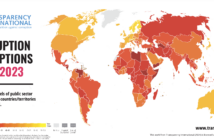About corruption…
 “…Our political system does not compete with with institutions which are elsewhere in force. We do not copy our neighbors, but try to be an example. Our administration favors the many instead of the few: this is why it is called a democracy. The laws afford equal justice to all alike in their private disputes, but we do not ignore the claims of excellence. When a citizen distinguishes himself, then he will be called to serve the state, in preference to others, not as a matter of privilege, but as a reward of merit; and poverty is no bar.
“…Our political system does not compete with with institutions which are elsewhere in force. We do not copy our neighbors, but try to be an example. Our administration favors the many instead of the few: this is why it is called a democracy. The laws afford equal justice to all alike in their private disputes, but we do not ignore the claims of excellence. When a citizen distinguishes himself, then he will be called to serve the state, in preference to others, not as a matter of privilege, but as a reward of merit; and poverty is no bar.
… The freedom we enjoy extends also to ordinary life; we are not suspicious of one another, and we do not nag our neighbor if he chooses to go his own way. … But this freedom does not make us lawless. We are taught to respect the magistrates and the laws, and never to forget that we must protect the injured. And we are also taught to observe those unwritten laws whose sanction lies only in the universal feeling of what is right….
Our city is thrown open to the world; we never expel a foreigner…. We are free to live exactly as we please, and yet, we are always ready to face any danger…. We love beauty without indulging in fancies, and although we try to improve our intellect. this does not weaken our will…. To admit one’s poverty is no disgrace with us; but we consider it disgraceful not to make an effort to avoid it. An Athenian citizen does not neglect public affairs when attending to his private business…. We consider a man who takes no interest in the state not as harmless, but as useless; and although only a few may originate a policy, we are all able to judge it. [Emphasis in Popper.] We do not look upon discussion as a stumbling block in the way of political action, but as an indispensable preliminary to acting wisely….”
Pericles, Athens
462-429. B.C.
Most Commonly Recognized Forms of Official Corruption
- Non-performance of duties; desertion; parasitism
- Treason; subversion; illegal foreign transactions; smuggling
- Kleptocracy; privatization of public funds; larceny and stealing
- Misappropriation; forgery and embezzlement; padding of accounts; diverted funds; misuse of funds; unaudited revenues; skimming
- Abuse and misuse of coercive power; intimidation; undeserved pardons and remissions; torture
- Deceit and fraud; misrepresentation; cheating and swindling
- Perversion of justice; criminal behaviour; false evidence; unlawful detention; frame-ups
- Bribery and graft; extortion; illegal levies; kickbacks
- Tampering with elections; vote-rigging; gerrymandering
- Misuse of inside knowledge and confidential information; falsification of records
- Unauthorized sale of public offices, loans, monopolies, contracts, licences and public property
- Manipulation of regulations, purchases and supplies; bias and favouritism
- Tax evasion; profiteering
- Influence-peddling; favour-brokering; conflicts of interest
- Acceptance of improper gifts and entertainments; “speed” money; blackmail
- Protecting maladministration; cover-ups; perjury
- Black market operations; links with organized crime
- Cronyism; junkets
- Misuse of official seals, stationery, residences and perquisites
- Illegal surveillance; misuse of mails and telecommunications



